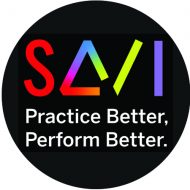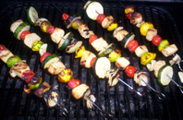Take steps now to achieve Maximum SAVI in the new school year!
On the rifle range, the command rings out: ready, aim, fire!
 Shimmering on its launchpad, the school year waits like a rocket, ready for liftoff at the start of September. Now, as the countdown dwindles down to its final days, we must READY and AIM ourselves. A new year begins; do you want to do better work this year? Have more rewarding classes, more satisfying lessons, more successful auditions, more fruitful creative projects? Take steps to READY and AIM yourself now and you’ll be more likely to achieve your goals this year.
Shimmering on its launchpad, the school year waits like a rocket, ready for liftoff at the start of September. Now, as the countdown dwindles down to its final days, we must READY and AIM ourselves. A new year begins; do you want to do better work this year? Have more rewarding classes, more satisfying lessons, more successful auditions, more fruitful creative projects? Take steps to READY and AIM yourself now and you’ll be more likely to achieve your goals this year.
Happy New Year!
My whole life has been organized according to the academic calendar, and September is a time of bright beginnings. A new school year brings new students, new classes, new opportunities to learn and grow. Whether you’re currently a student or a teacher or not, the season has an unmistakable feeling of promise.
Meanwhile, August is a time for laying low, denying that the school year will start soon for as long as possible. Those syllabi, those advising questions, those artistic projects about to commence, they can wait just a little longer, while we cling to summer’s luxurious idleness. But though I feel the sand between my toes, my thoughts inevitably stray to the imminent onset of the academic year, and I want to get my shit together.
This post is about getting your shit together. It’s about the time you need to spend preparing for action, taking advantage of that window of time when reflection on the past and planning for the future are not crowded out by the clamor and rush of the urgent present.
What Do You Want?
Defining outcomes is crucial to success. If you don’t know where you’re going, how will you know when you get there? Now is a great time to envision what a good year might look like. How will you know if things are going well, or getting better? Does your list include any of the following?
- Feeling more confident in classes, lessons, auditions and rehearsals
- Improving your technique
- Getting praise from teachers and peers
- Getting good (or better) grades
- Booking more jobs
Before you can improve something, you have to find a way to measure it. Of course, this is wicked tricky when you’re talking about art. Qualitative judgments are subjective, after all – what seems brilliant to one observer could seem utterly lame to another, and everyone’s got an opinion. That’s why you need a system.
The SAVI System was developed in part to establish a set of concepts, categories and terminology that can be used for talking qualitatively about singing acting:
- Is the work Specific? Is it as specific as possible to the imaginary circumstances, the dramatic event, the particular phrase, the expressive choices made? Is your practicing helping you become more specific?
- Is the work Authentic? Is it phony and fake, too much external show? Do your choices have the ring of truth or the smell of bullshit? Are you connecting truthfully with your partners onstage, real and imaginary? Is your work growing increasingly authentic over time?
- Is the work Varied? As you practice and train, does your range of expression continue to grow? Can you truthfully inhabit many different emotional states? Are you consistently singing and dinging, making adjustments at the beginning of each new phrase that express a dynamic inner life? Are you serving up shish-kebab, not applesauce?
- Is the work Intense? Are you able to give more, to go to extremes? Are you increasingly able to vary your intensity from moment to moment. Can you create intensity without wasted effort, vocal strain, wear and tear?
How would you feel about adopting this as a goal for the coming year: Maximum SAVI?
By identifying these four essential qualities of effective singing acting, I’ve steered several generations of singer-actors down a path of progress. Pursuing these qualities in the practice room and the rehearsal room is guaranteed to bring you greater success in performance.
From Qualitative to Quantitative
The four qualities in SAVI are too complex to be easily quantifiable. It is foolish to imagine we can assign a single score to any of those categories when we assess a singing actor’s work. For one thing, each one is a cluster of concepts and considerations gathered around a single word, and a performer can exhibit different levels of mastery within the conceptual span of a given term: for example, being specific about behavior without attending sufficiently to specificity of dramatic circumstances. For another, performance is a temporal art, and your degree of success is likely to fluctuate from moment to moment.
Equally daunting is the challenge of self-observation. It’s awfully hard to get a clear picture of how well we’re doing – or even WHAT we’re doing – while we’re involved in the act of doing it. That’s why we’re so dependent on teachers and classes: they provide the opportunity to get feedback, information from outside observers about what our work is like. We begin to feel lost without the teacher’s guidance, and we come to crave their approval and praise.
Over the years, I’ve become an enthusiastic proponent of video as a learning tool. It’s a brilliantly simple solution to the challenge of self-observation. It makes it possible for you to hear AND see your work with detachment, to learn whether what you THINK you’re doing is what you’re ACTUALLY doing and to assess your level of SAVI with some objectivity. It gives you newfound self-sufficiency in your pursuit of your goals. It’s not a substitute for a good teacher, but it can augment and amplify their teachings and give you greater confidence about putting their instruction into practice.
You Can’t Manage What You Can’t Measure
This axiom comes from the business world, and if you’re an artist, I don’t blame you for bristling at its “bottom-line” formulation. Art is essentially unmanageable, unmeasurable, one can argue; our lives are not a balance sheet, with profit and loss totaled up in a single figure at the bottom.
Increasingly, though, even artists are coming to learn that “what we measure, we improve.” Blogger James Clear explains that “the trick is to realize that counting, measuring, and tracking is not about the result. It’s about the system, not the goal,” he observes, and offers these three suggestions:
Measure from a place of curiosity. Measure to discover, to find out, to understand.
Measure from a place of self-awareness. Measure to get to know yourself better.
Measure to see if you are showing up. Measure to see if you’re actually spending time on the things that are important to you.
Get Ready To Measure
In the weeks ahead, then, as you ready and aim yourself before the launch of the coming school year, one of the most helpful things I think you can do is resolve to keep track:
- How many times a week do you practice? Did you manage to practice three times a week?
- How much total time each week do you practice? Do you practice at least ninety minutes a week?
- Does each of your practice sessions include time spent on conditioning, exploring and crafting?
- How many times each week do you record yourself on video? At least once a week, fire up the video camera on your phone or laptop and record a few minutes of your singing-acting work. Then take the time to examine it thoughtfully.
I call this approach “Train to Gain,” and I’ve written more about it here.
Gathering this sort of data is crucial to set a successfully course in the weeks ahead. Navigating the swift currents of September is exhausting under the best of circumstances, but if you don’t have goals in mind and systems in place for tracking your progress toward those goals, you could just be flailing about in the water, wearing yourself out without making any headway.
What are your New Year’s Resolutions for the coming academic year? Tell me about them in the comments below!

